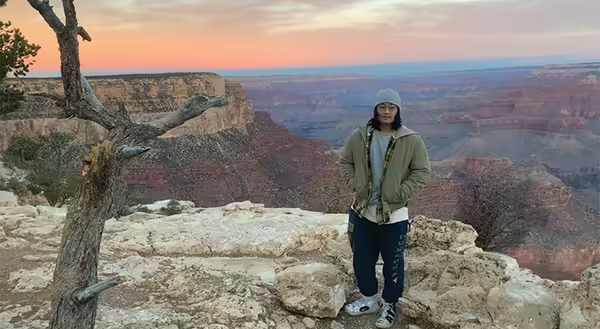
As an ISPP Scholar, Yu Tian is appointed with the Illinois Department of Innovation and Technology. His work is significant in looking at gaps in STEM/STEAM resources and information gaps between people and resources. Yu shared some thoughts with me about the ISP program, and his work so far.
Why did you apply for the Illini Science Policy Program?
The Illinois Science Policy Program is an attraction for me as the very first program after graduation. It provides me a chance to practice what I learned in the public sector instead of academy only. The knowledge learned from school can enrich my theoretical background, but when policies are practiced in the public, more factors and limits can be considered. This program helps me bridge the gap between academy and practice. Additionally, through this program, I can further prepare for my career direction according to the experience in my work. The work covers a lot of domains that I am interested in, so that I can figure out my strength and weakness and what areas I need to improve.
Tell us a bit about what you hope to accomplish as a result of being a 2023 Scholar.
I have always been interested in the social equity in cities through different domains including education. I hope I can play a role in filling the gap between people and resources. Currently, we are surrounded by plenty of information and resources, but those are not always accessed by people. How can we fill the gap and allow people with various background to access them equitably? This is what I am interested in and what I hope to improve.
Tell us a bit about what you are working on for your host agency
At the Department of Innovation and Technology (DoIT), we provide technical supports to the agencies throughout the states. Specifically, STEAM group in DoIT supports educators and the public with educational resources and services, such as STEAM newsletter and STEAM Expo. For the project I am doing, I want to add a resources searching tool to our services that allows people to search for educational resources around the are so that they can locate organize activities that focus on STEAM education.
Tell us a bit about what you are working with your Extension Mentor
My Extension Mentor, Keith Jacobs, is working on 4-H youth development in STEM education domains. He has different creative projects for STEM education, which I will contribute my skills and expertise in mapping and digital media. Additionally, we will collaborate with projects in DoIT, such as STEAM Expo during the State Fair, and he will provide me with resources to build out a STEM/STEAM searching tool. Overall, we will work together to contribute to STEM/STEAM by enhancing K-12 education resources for educators.
What makes the work you are doing as an ISPP Scholar meaningful to you?
I think the work as an ISPP Scholar is worthwhile in terms of the contribution to supporting K-12 education policy. In the projects, I can practice my skills and knowledge in public policy, which inspires my future research and career. Additionally, by the projects we are working on, we fill the information gap between people and resources, contributing to educational equity as well.
What is one thing that you have learned since becoming an ISPP Scholar that has made an impression on your transition from graduate student to career individual?
I have learned how public policy applies to the society. It is fascinating when I realize the systematic efforts in contributing policymaking, such as tax, technology, urban form, etc..
Why is/are the issue(s) important to the communities with which you are working?
Nowadays, we are exposed to a data-rich world. In K-12 STEAM education, institutions, governments, organizations, and companies are offering creative and useful resources for educators and students. The resources are available and accessible, but sometimes not visible by people. To facilitate the education equity, it is essential to fill the gap between them, so that everyone can have opportunities to utilize the resources.
Who is impacted by the issue(s) you are working on?
In K-12 STEAM education, the issues we are working on will impact the educators, K-12 students and those who want to utilize and facilitate the educational resources, such as library, homeschoolers, and after school programs.
What is the most unexpected thing about this program so far?
The most unexpected thing about this program is the projects format. Different from assigned projects, I can decide which projects I can work on and collaborate with my colleagues. Additionally, I can utilize my skills to design the projects myself, from which I learned how to organize a project and solve the challenges in project.
If you could do one thing through this program and think “Wow, I did that,” what would you like it to be?
I think one thing making me proud will be the utilization of my projects, resources searching tool. I would be happy when I complete the tool development, get feedbacks from the users, and help them find out the useful resources.
Anything else you’d like to share?
I’m thankful for the efforts and support from my advisors, Mary Reynolds, and Dr. Pianfetti. I am learning a lot from them and I am glad to get the chances to practice my academic skills in work.
More information about the Illini Science Policy Program is available on our website.. Keep reading to learn more about Yu's colleagues in the of 2023 ISPP Scholar Class.